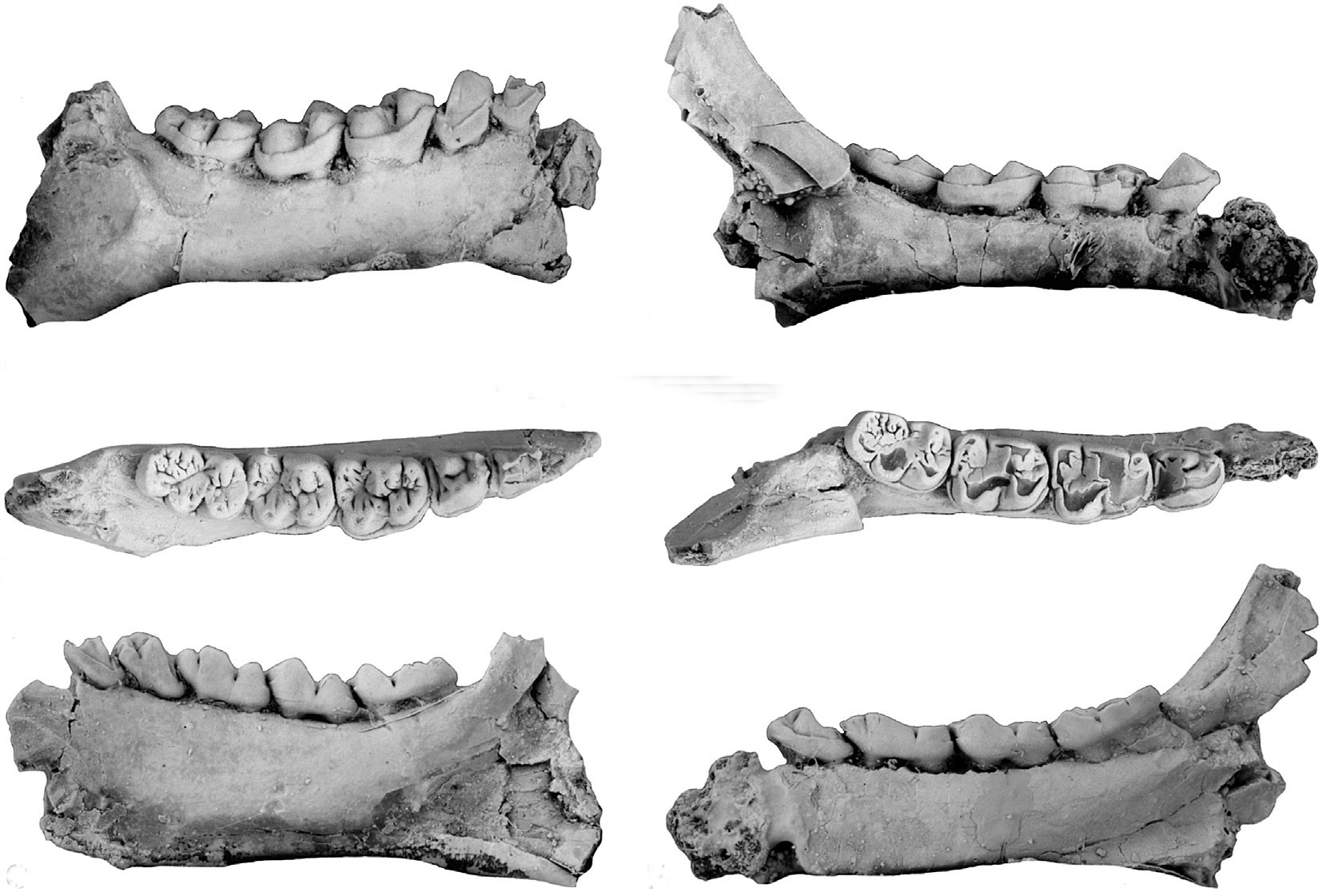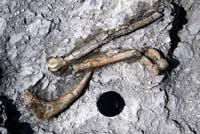A fossil from the Upper Eocene states that the mammals of the Iberian peninsula were not isolated
2013/10/21 Galarraga Aiestaran, Ana - Elhuyar Zientzia Iturria: Elhuyar aldizkaria

In Zambrana, researchers from the department of Stratigraphy and Paleontology of the University of the Basque Country and the Institute of Paleontology Miquel Crusafont (Barcelona) have found fossils of a primate Microchoerus. It has been determined that two parts of the manure of an individual of this species, belonging to the Upper Eocene (37 million years ago) have been found.
The study was published in the journal Journal of Human Evolution. According to the article, it is an important discovery, since for the first time fossils of this species have been found in the west of the Iberian peninsula, and with it they have cancelled the hypothesis that explained how species were distributed at that time. In fact, until now it was thought that the mammals of the western Iberian peninsula were endemic and were separated from the species of the continent. Now, however, they have shown that the primate Microchoerus extended to these areas of the peninsula. Therefore, contrary to what they thought, the fauna was not totally isolated. The Microchoerus primate, now disappeared, resembles the Galapagos that inhabit Africa. On the other hand, along with these two fossils, Zambrana has witnessed many other Upper Eocene, such as turtles, crocodiles and marsupials.

Gai honi buruzko eduki gehiago
Elhuyarrek garatutako teknologia




